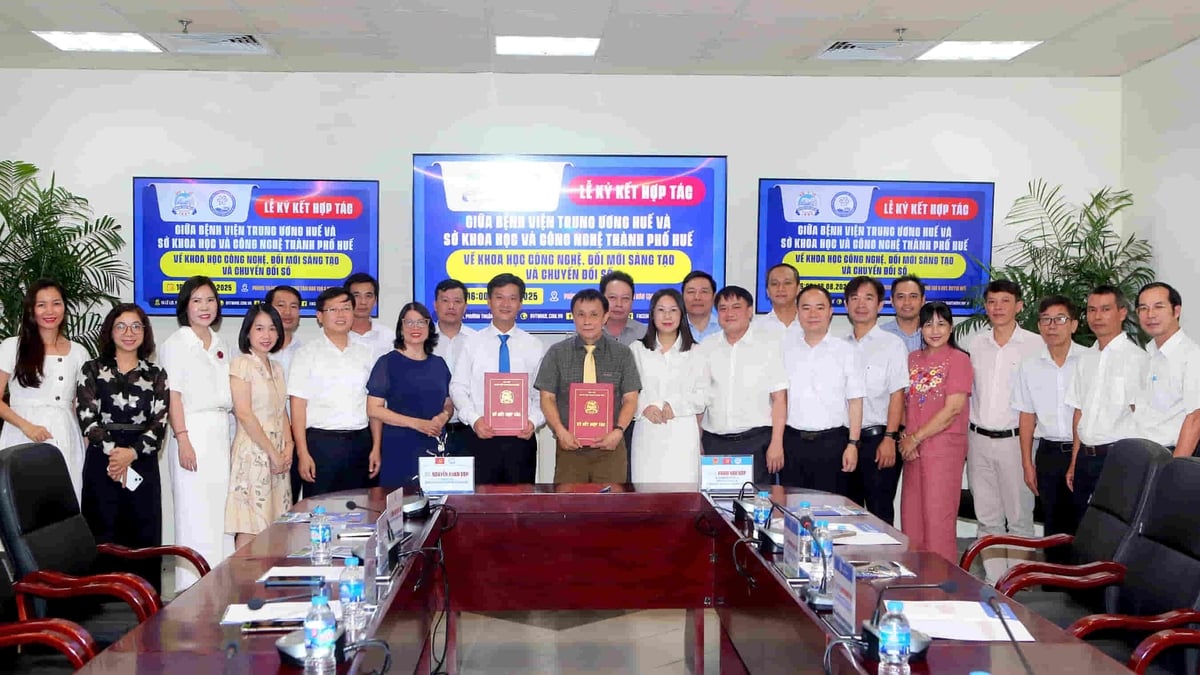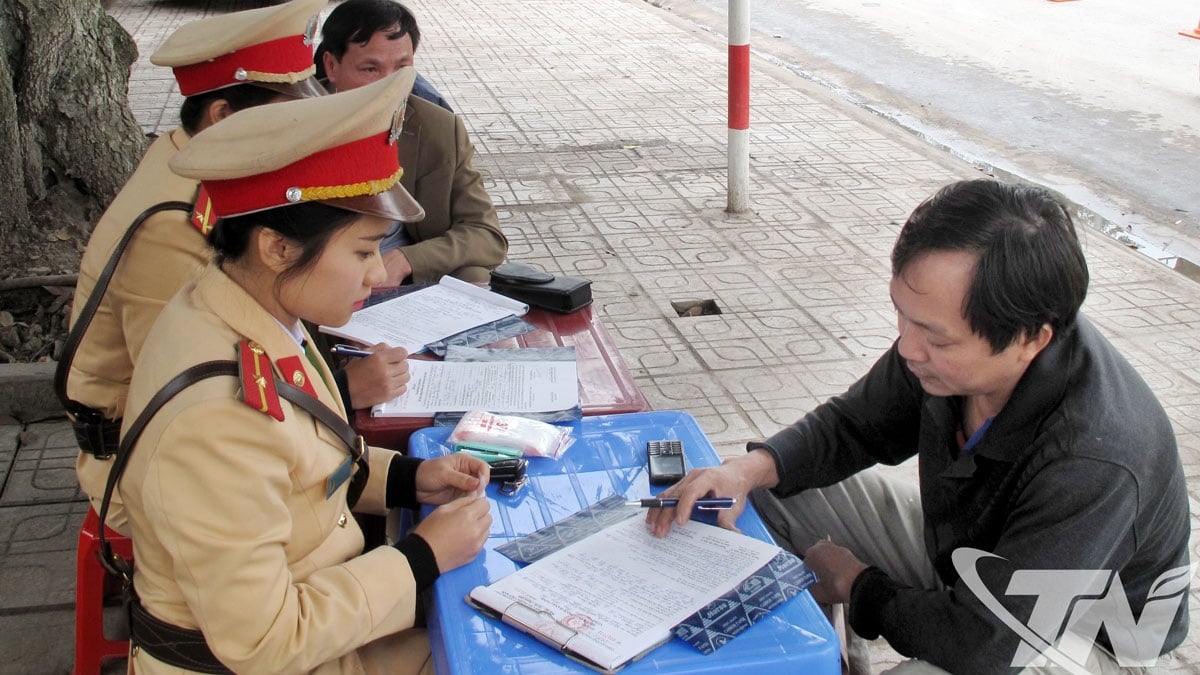
With the current rapid growth rate, the demand for human resources for e-commerce in Vietnam is increasing rapidly and will continue to increase even faster. Therefore, to quench the thirst for human resources in e-commerce, the Ministry of Industry and Trade will promote the improvement of training quality to achieve the goal of "Developing human resources in e-commerce" according to the National E-commerce Development Master Plan for the period 2026 - 2030.
According to experts, in 2024, the e-commerce market size will exceed 25 billion USD, an increase of 20% compared to 2023, accounting for 9% of total retail sales of goods and consumer services nationwide. Notably, Vietnam continues to be in the Top 10 countries leading the world in e-commerce, ranking 5th in the world in terms of growth rate. E-commerce is creating millions of jobs, promoting digital transformation of businesses and becoming a pillar in the digital economy . However, while the growth rate of e-commerce is developing rapidly, the labor market is developing asynchronously, and human resources serving the industry have not received proper training.
Ms. Le Hoang Oanh - Director of the Department of E-commerce and Digital Economy (Ministry of Industry and Trade) said: For many years, human resources for e-commerce, especially high-quality human resources, have always been a major problem hindering the development of e-commerce in Vietnam. This is a field that requires broad knowledge in many fields such as economics, information technology, management and foreign languages, etc., requiring long training periods; short-term and vocational training courses only temporarily solve the problem during times of human resource shortage. Therefore, long-term formal training at higher education institutions has become a fundamental solution for high-quality human resources for e-commerce in the future.
“In educational institutions, e-commerce is one of the trending majors, offering open and diverse job opportunities with attractive salaries and a dynamic working environment,” said Ms. Le Hoang Oanh.
A survey by the Department of E-commerce and Digital Economy (Ministry of Industry and Trade) shows that: Only 30% of the workforce working at enterprises providing e-commerce solutions are currently properly and formally trained. The remaining 70% come from other industries such as business, information technology, marketing... and have to self-study and self-train to adapt to the job. This shows that the demand of society and businesses for human resources in e-commerce is very large.
The report of the Vietnam E-commerce Association shows that the number of universities and colleges in Vietnam is over 500; of which, 36 schools specialize in e-commerce, over 50 schools provide e-commerce courses. This number is still quite limited to meet market demand. In addition, e-commerce training activities at universities still face many obstacles such as lecturers, learning materials, training programs, cooperation between schools, linking training with practice, etc.
According to Lazada representative, not only e-commerce platforms have demand but also retail businesses that are digitally transforming and shifting their business to e-commerce also need specialized human resources to implement. This is the reason why the demand for high-quality human resources in e-commerce is constantly increasing rapidly.
In practice, although the rate of training e-commerce human resources in universities has increased by nearly 30%, it has not kept up with the growth and development needs of the industry. This requires universities to make more efforts to improve the quality and training programs, and link training with the practical needs of society and businesses.
Mr. Do Huu Hung, CEO of Accesstrade (Interspace Vietnam Co., Ltd.) stated: Currently, Vietnam can only train about 10,000 - 15,000 students in e-commerce each year, while Shopee alone has more than 600,000 stores operating in need of human resources. If each business only needs one person, it will take... 30 years to have enough human resources for the industry. Moreover, the training of human resources for e-commerce is still lacking in methodology and standards while e-commerce is creating millions of jobs and helping to increase cross-border export opportunities.
In order to support local State management agencies in updating new policies on e-commerce as well as supporting businesses in removing difficulties in production and business, recently, the Center for E-commerce Development (EcomViet - Department of E-commerce and Digital Economy) has coordinated with departments and cross-border e-commerce platforms such as Amazon and Alibaba to deploy a series of e-commerce connection programs combined with e-commerce training and coaching in a number of provinces and cities across the country.
The Department of E-commerce and Digital Economy has also signed an agreement with Amazon Global Selling to jointly implement the “Cross-border e-commerce: Breakthrough era” initiative with the goal of supporting the development of cross-border e-commerce human resources for Vietnamese enterprises in the period of 2022 - 2026 to improve capacity and open up export opportunities for local enterprises.
Typically, EcomViet regularly coordinates with the Department of Industry and Trade, major e-commerce platforms such as Amazon, Alibaba to deploy many e-commerce connection programs combined with local training. These training courses attract the participation of many businesses, cooperatives, managers and universities.
A survey by the Vietnam E-commerce Association at 238 universities showed that 47% of schools have implemented e-commerce training courses; of which, 40 schools have trained in e-commerce with a regular major code. In addition, many localities have issued e-commerce development plans, in which the goal of training human resources is the center for local e-commerce development.
Commenting on this issue, Mr. Bui Trung Kien, Vice President of the Vietnam E-commerce Association, said: To improve the quality of e-commerce training activities, there needs to be synchronous coordination between schools, businesses and management agencies. Notably, the focus is on promoting the connection between schools and businesses, building e-commerce vocational training programs in coordination between universities, colleges and businesses so that students can practice, update technology, and online commerce operations. At the same time, schools are encouraged to organize practical application courses such as building e-commerce websites, running advertising campaigns, and livestreaming sales.
As part of a series of training and human resource development programs, Happy Money Company recently organized a training course with the theme "Professionalism in every interaction - Happy Money standard communication style" for nearly 200 officers and employees of transaction offices and related departments under the direct guidance of business skills training experts.
The training content is designed in-depth, aiming to standardize communication style, form professional style and build a human resource image suitable for the characteristics of the industry. Not only theory, the training session is integrated with many interactive practical activities to help Happy Money employees easily apply directly to work to improve the quality of the team at service touch points, especially the transaction office block, where there is direct and frequent contact with customers.
In order to promote training, propaganda and human resource development, according to Ms. Le Hoang Oanh, the Department of E-commerce and Digital Economy will step up the implementation of the E-commerce Development Plan in localities; in which, focusing on training and improving the quality of human resources in e-commerce. In addition, the Department will regularly coordinate with departments and cross-border e-commerce platforms such as Amazon and Alibaba to implement a series of e-commerce connection programs combined with training and coaching in a number of provinces and cities across the country.
On the other hand, the Department of E-commerce and Digital Economy will support schools to supplement and amend training programs, lectures, learning materials, internships and traineeships for lecturers and students, and help lecturers and students update policies and new trends of digital business and technology in this field. Thereby, quenching the thirst for human resources for e-commerce, building a professional, confident, and standardized team in every interaction to increase customer trust towards sustainable development in the digital age.
Source: https://baolaocai.vn/con-khat-nhan-luc-thuong-mai-dien-tu-post401639.html

























![[Photo] An Phu intersection project connecting Ho Chi Minh City-Long Thanh-Dau Giay expressway behind schedule](https://vphoto.vietnam.vn/thumb/1200x675/vietnam/resource/IMAGE/2025/8/21/1ad80e9dd8944150bb72e6c49ecc7e08)

![[Photo] Prime Minister Pham Minh Chinh receives Australian Foreign Minister Penny Wong](https://vphoto.vietnam.vn/thumb/1200x675/vietnam/resource/IMAGE/2025/8/20/f5d413a946444bd2be288d6b700afc33)


![[Photo] Politburo works with Standing Committees of Lang Son and Bac Ninh Provincial Party Committees](https://vphoto.vietnam.vn/thumb/1200x675/vietnam/resource/IMAGE/2025/8/20/0666629afb39421d8e1bd8922a0537e6)











































































Comment (0)